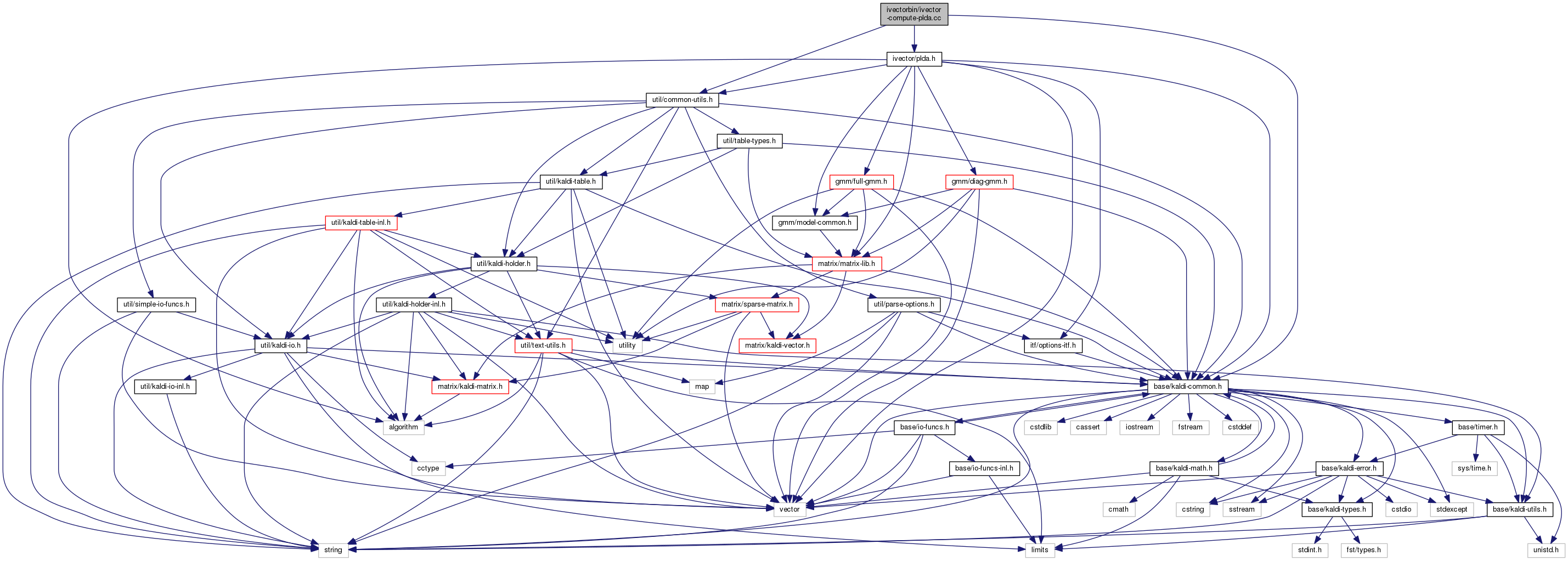27 using namespace kaldi;
31 "Computes a Plda object (for Probabilistic Linear Discriminant Analysis)\n" 32 "from a set of iVectors. Uses speaker information from a spk2utt file\n" 33 "to compute within and between class variances.\n" 35 "Usage: ivector-compute-plda [options] <spk2utt-rspecifier> <ivector-rspecifier> " 38 " ivector-compute-plda ark:spk2utt ark,s,cs:ivectors.ark plda\n";
47 po.Register(
"binary", &binary,
"Write output in binary mode");
51 if (po.NumArgs() != 3) {
56 std::string spk2utt_rspecifier = po.GetArg(1),
57 ivector_rspecifier = po.GetArg(2),
58 plda_wxfilename = po.GetArg(3);
60 int64 num_spk_done = 0, num_spk_err = 0,
61 num_utt_done = 0, num_utt_err = 0;
68 for (; !spk2utt_reader.Done(); spk2utt_reader.Next()) {
69 std::string spk = spk2utt_reader.Key();
70 const std::vector<std::string> &uttlist = spk2utt_reader.Value();
71 if (uttlist.empty()) {
72 KALDI_ERR <<
"Speaker with no utterances.";
74 std::vector<Vector<BaseFloat> > ivectors;
75 ivectors.reserve(uttlist.size());
77 for (
size_t i = 0;
i < uttlist.size();
i++) {
78 std::string utt = uttlist[
i];
79 if (!ivector_reader.HasKey(utt)) {
80 KALDI_WARN <<
"No iVector present in input for utterance " << utt;
83 ivectors.resize(ivectors.size() + 1);
84 ivectors.back() = ivector_reader.Value(utt);
89 if (ivectors.size() == 0) {
90 KALDI_WARN <<
"Not producing output for speaker " << spk
91 <<
" since no utterances had iVectors";
95 for (
size_t i = 0;
i < ivectors.size();
i++)
96 ivector_mat.
Row(
i).CopyFromVec(ivectors[
i]);
105 if (num_utt_done <= plda_stats.
Dim())
106 KALDI_ERR <<
"Number of training iVectors is not greater than their " 107 <<
"dimension, unable to estimate PLDA.";
109 KALDI_LOG <<
"Accumulated stats from " << num_spk_done <<
" speakers (" 110 << num_spk_err <<
" with no utterances), consisting of " 111 << num_utt_done <<
" utterances (" << num_utt_err
112 <<
" absent from input).";
114 if (num_spk_done == 0)
115 KALDI_ERR <<
"No stats accumulated, unable to estimate PLDA.";
116 if (num_spk_done == num_utt_done)
117 KALDI_ERR <<
"No speakers with multiple utterances, " 118 <<
"unable to estimate PLDA.";
123 plda_estimator.Estimate(plda_config, &plda);
127 return (num_spk_done != 0 ? 0 : 1);
128 }
catch(
const std::exception &e) {
129 std::cerr << e.what();
This code computes Goodness of Pronunciation (GOP) and extracts phone-level pronunciation feature for...
Allows random access to a collection of objects in an archive or script file; see The Table concept...
The class ParseOptions is for parsing command-line options; see Parsing command-line options for more...
const SubVector< Real > Row(MatrixIndexT i) const
Return specific row of matrix [const].
A templated class for reading objects sequentially from an archive or script file; see The Table conc...
void AddSamples(double weight, const Matrix< double > &group)
The dimension is set up the first time you add samples.
void WriteKaldiObject(const C &c, const std::string &filename, bool binary)
void Register(OptionsItf *opts)
